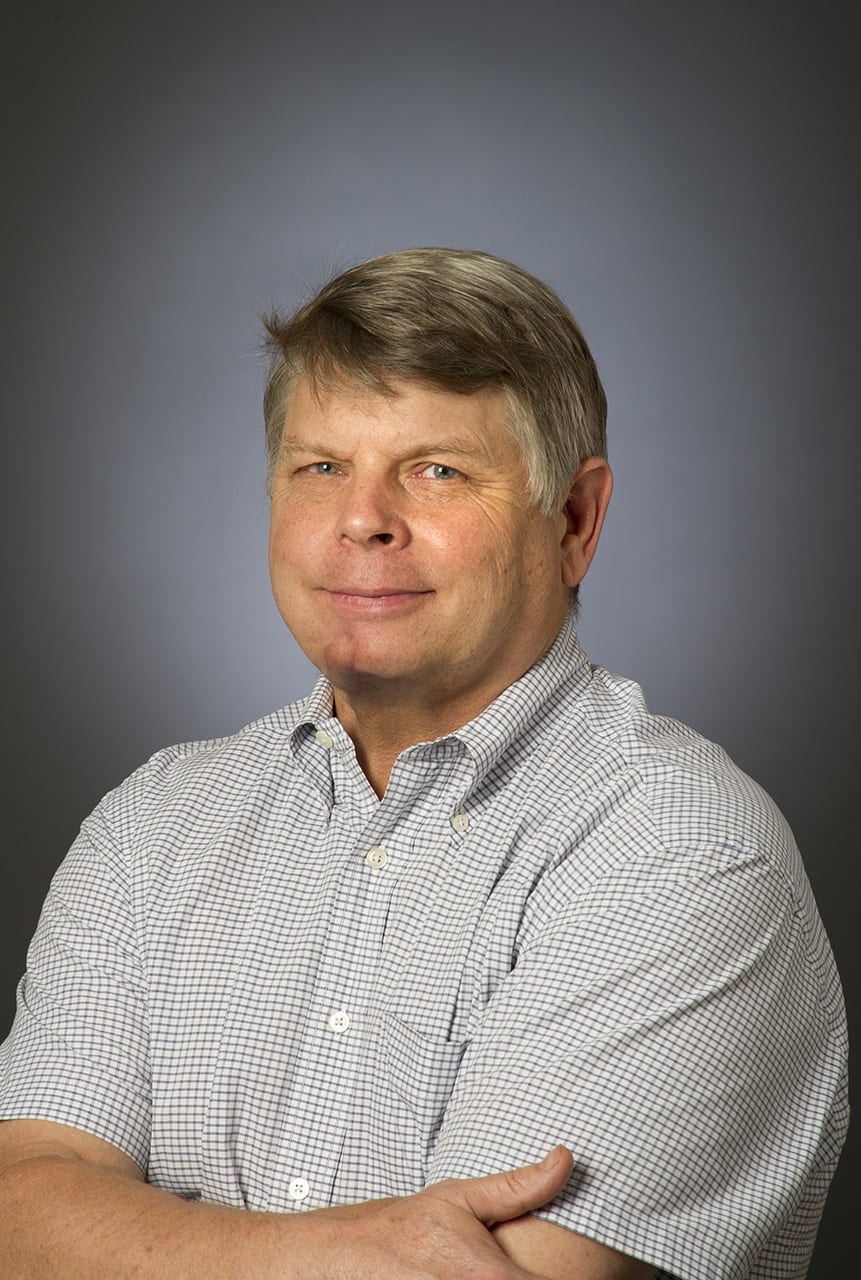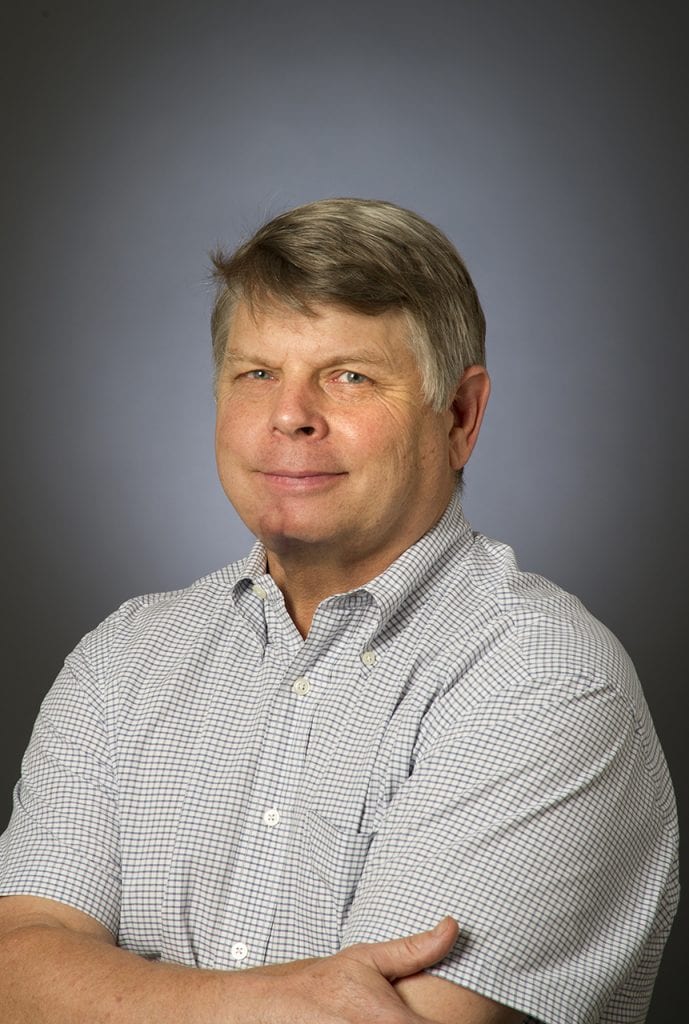WHOI Geologist Henry Dick Named AAAS 2016 Fellow
 Henry Dick, a senior scientist in the WHOI Geology and Geophysics Department, was elected as an AAAS Fellow for “seminal contributions toward understanding abyssal peridotites and their importance for understanding the Earth’s upper mantle.” (Photo by Tom Kleindinst, Woods Hole Oceanographic Institution)
Henry Dick, a senior scientist in the WHOI Geology and Geophysics Department, was elected as an AAAS Fellow for “seminal contributions toward understanding abyssal peridotites and their importance for understanding the Earth’s upper mantle.” (Photo by Tom Kleindinst, Woods Hole Oceanographic Institution) November 23, 2016
Henry Dick of the Woods Hole Oceanographic Institution (WHOI) has been named a Fellow of the American Association for the Advancement of Science (AAAS). Election as an AAAS Fellow is an honor bestowed upon association members by their peers.
A senior scientist in the WHOI Geology and Geophysics Department, Dick was elected as an AAAS Fellow for “seminal contributions toward understanding abyssal peridotites and their importance for understanding the Earth’s upper mantle.”
Dick’s research focuses on how Earth’s crust is formed at ocean ridges and, in particular, the relationship between mantle flow, melting and ridge tectonics.
Over his decades-long career, Dick’s studies of abyssal peridotites—fragments of the Earth’s mantle exposed on the ocean floor—has helped establish the present-day understanding of the evolution of the shallow mantle, the process of mantle melting, and the formation of the ocean crust.
Dick is among 391 members awarded this honor in 2016 by AAAS because of their scientifically or socially distinguished efforts to advance science or its applications. New Fellows will be presented with an official certificate and a gold and blue (representing science and engineering, respectively) rosette pin on February 18, 2017, at the AAAS Fellows Forum during the 2017 AAAS Annual Meeting in Boston, Mass.
This year’s AAAS Fellows will be formally announced in the AAAS News & Notes section of the journal Science on November 25, 2016.
“I’m truly honored to be chosen as an AAAS Fellow, which is a good crowd to belong to that includes a more than a few Nobel Laureates,” Dick said. “The AAAS is the largest scientific organization in the world by membership and is the publisher of Science Magazine, one of the two premier scientific journals in the world. Since the annual meeting, which will be held in Boston this year, is the major venue for informing the public, policy makers, and the media about what’s happening in all the fields of science—from social science to theoretical physics and astronomy—it is nice to be recognized by them, as it means your work is having an impact beyond your own specialty.”
Dick began work at WHOI as a post-doctoral investigator in 1975, working as part of project FAMOUS, the first international collaboration to explore the Mid-Ocean Ridge. He was hired onto the scientific staff in 1976, and was appointed a senior scientist in 1990.
Dick is a fellow of the Geological Society of America and the American Geophysical Union. In 2011, he was honored with an American Geophysical Union Harry H. Hess Medal for outstanding achievements in research of the constitution and evolution of Earth and other planets.
The tradition of AAAS Fellows began in 1874. Currently, members can be considered for the rank of Fellow if nominated by the steering groups of the Association’s 24 sections, or by any three Fellows who are current AAAS members (so long as two of the three sponsors are not affiliated with the nominee’s institution), or by the AAAS chief executive officer. Fellows must have been continuous members of AAAS for four years by the end of the calendar year in which they are elected.
Each steering group reviews the nominations of individuals within its respective section and a final list is forwarded to the AAAS Council, which votes on the aggregate list.
The Council is the policymaking body of the Association, chaired by the AAAS president, and consisting of the members of the board of directors, the retiring section chairs, delegates from each electorate and each regional division, and two delegates from the National Association of Academies of Science.
# # #
The Woods Hole Oceanographic Institution is a private, non-profit organization on Cape Cod, Mass., dedicated to marine research, engineering, and higher education. Established in 1930 on a recommendation from the National Academy of Sciences, its primary mission is to understand the ocean and its interaction with the Earth as a whole, and to communicate a basic understanding of the ocean’s role in the changing global environment. For more information, please visit www.whoi.edu.
* * *
The American Association for the Advancement of Science (AAAS) is the world’s largest general scientific society and publisher of the journal Science (www.sciencemag.org) as well as Science Translational Medicine, Science Signaling, a digital, open-access journal, Science Advances, Science Immunology, and Science Robotics. AAAS was founded in 1848 and includes nearly 250 affiliated societies and academies of science, serving 10 million individuals. Science has the largest paid circulation of any peer-reviewed general science journal in the world. The non-profit AAAS (www.aaas.org) is open to all and fulfills its mission to “advance science and serve society” through initiatives in science policy, international programs, science education, public engagement, and more. For the latest research news, log onto EurekAlert! (www.eurekalert.org), the premier science-news Web site, a service of AAAS. See www.aaas.org.

